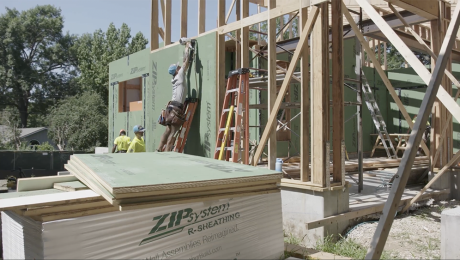Arbitration
If you can't resolve your differences in the field, here's an alternative to court.
Synopsis: Disagreements between builder and client are an unfortunate fact of life. In this short article, the author explains how the arbitration process works and why it’s a good alternative to settling differences in court.
If you’ve ever read a construction contract, you may have come across these words:
“Any controversy or Claim arising out of or related to the Contract, or the breach thereof, shall be settled by arbitration in accordance with the Construction Industry Arbitration Rules of the American Arbitration Association…”
That’s the beginning of the arbitration section of the American Institute of Architects (AIA) Document A201, General Conditions of the Contract for Construction (1987 edition). Arbitration provisions like this have been written in most AIA contract forms since 1888, but as our society becomes more litigious, arbitration may be taken up more frequently as a way of resolving construction conflicts and avoiding civil courts.
Simple, fast and confidential
Arbitration is a nonjudicial means of resolving disputes between two parties. A claimant wishing to initiate arbitration should use the procedures established by the Construction Industry Arbitration Rules of the American Arbitration Association (AAA). The AAA is a private, nonprofit organization with 32 offices in major cities across the country. Its headquarters are at 140 W. 51st St., New York, N. Y. 10020. Arbitration can be used to resolve disputes of many kinds, including labor, international, marital and construction disagreements. Construction arbitration is a large portion of the AAA’s cases. Last year, the AAA handled 4,940 construction cases with total claims and counterclaims of almost $786 million. In contrast to civil litigation — a complex process that may seem incomprehensible to a layperson — arbitration allows parties to settle disputes in a quick, informal and generally less costly manner.
Arbitration proceedings are private, too. Hearings are held with only the arbitrator, claimant, respondent, respective attorneys and witnesses present, and the proceedings don’t become part of the public record. This confidentiality is critical to those who do not want competitors to hear sensitive business information — a problem that could occur if a legal battle takes place in the public forum of court.
Also unlike litigation, which often results in an either/or decision, arbitration may result in a decided compromise rather than a total win for one party. An arbitrator bases a decision on fairness and impartiality, not on legal principles alone.
Parties select arbitrators by mutual agreement, whereas they may not choose a judge. Arbitrators can be chosen for their special knowledge of the subject matter, of the local business practices and of the relevant law. Having an expert arbitrator means that procedures are streamlined, taking much less time to get to the essence of a case than it would to present the dispute to a jury of laypersons.
For more details, click the View PDF button below:






















